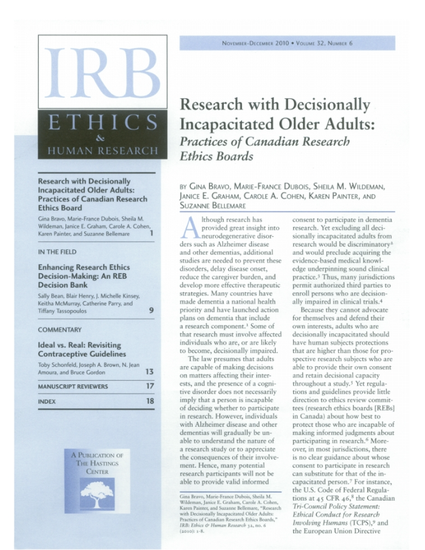
- Informed Consent to Research,
- Competence And Capacity,
- Vulnerable Populations,
- Risks And Benefits To Research Participants,
- Institutional Review Boards,
- Research Ethics Boards
Older adults who are incapable of giving informed consent to participate in dementia research require special regulatory protection. We investigated the practices of Canadian research ethics boards (REBs) regarding research protocols that may involve these individuals. We also explored the opinions of REB chairs on related issues, including research advance directives and longitudinal studies. The data were collected through telephone interviews with 46 chairs from four Canadian provinces. We observed great variability in practices and opinions, as well as some instances of REBs not complying with prevailing ethical and legal norms. These findings reflect, at least in part, significant regulatory gaps and related uncertainties about the terms attached to the approval of research protocols that may involve decisionally incapacitated adults. We conclude that clearer and more comprehensive regulatory criteria are required for research with this population.
